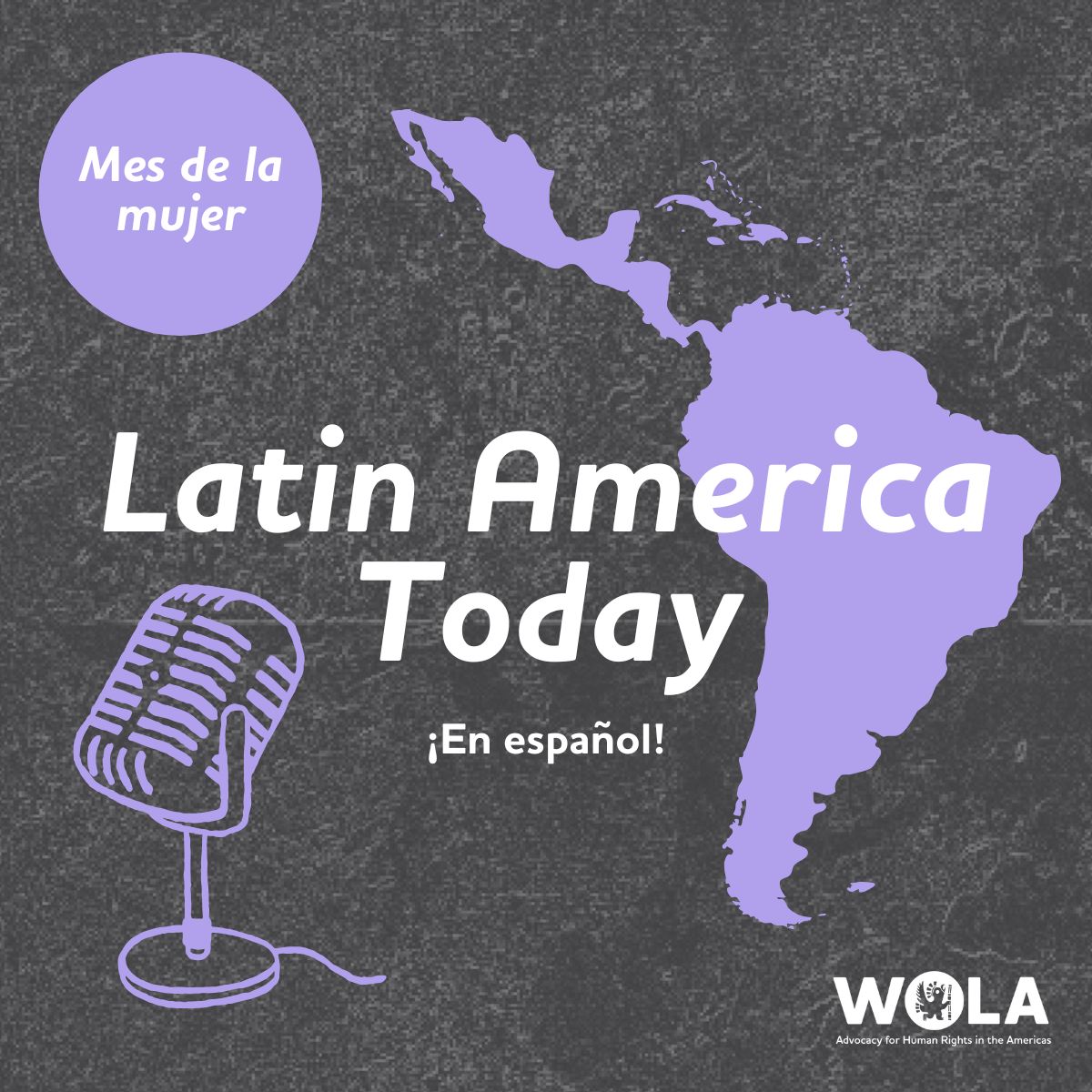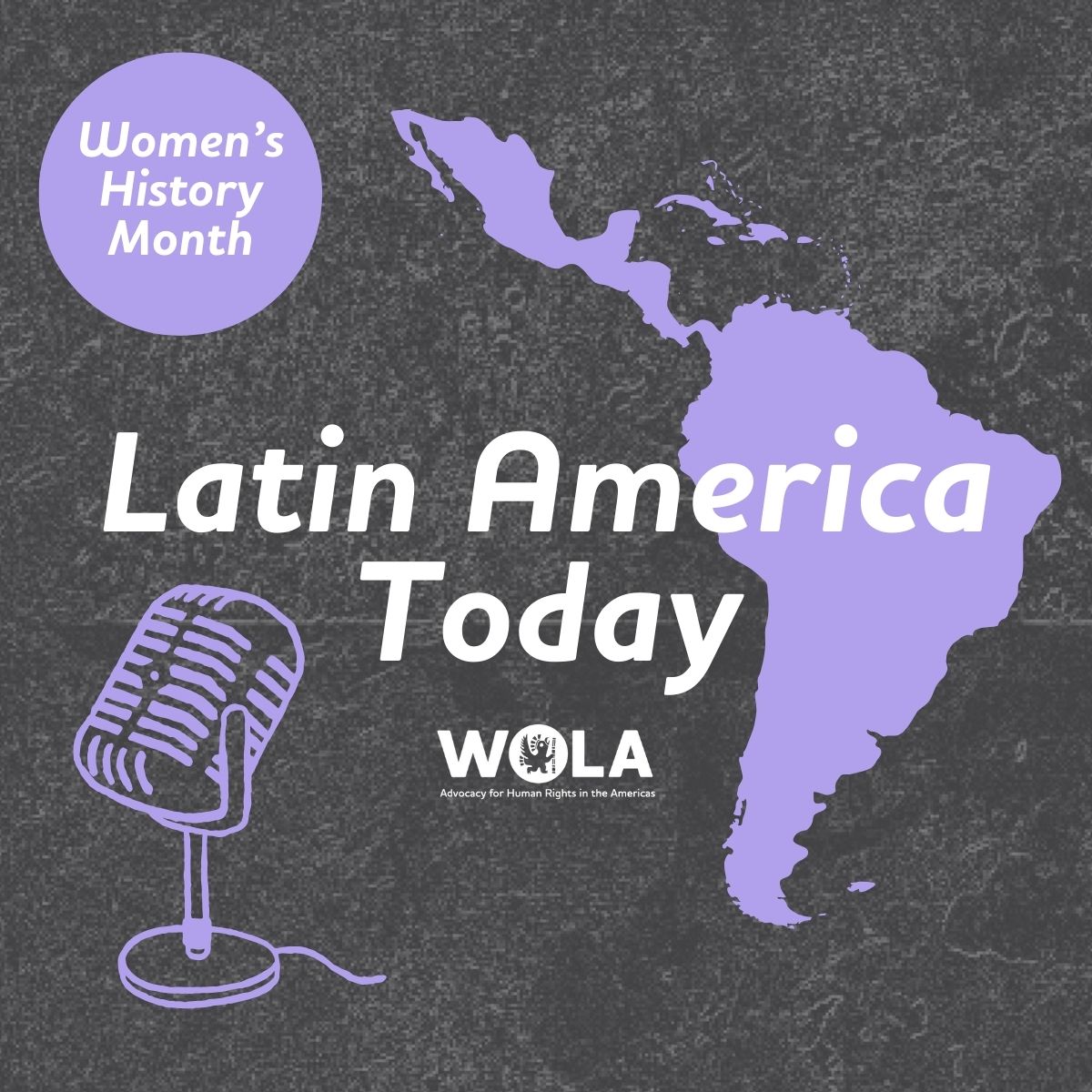The Grim Side of El Salvador’s “Security Model”
Description
A special episode as part of WOLA’s 2025 Human Rights Awards Month
President Nayib Bukele’s government has jailed nearly 2 percent of El Salvador’s entire population—the highest incarceration rate in the world. Still, because violence has dropped sharply, political figures across Latin America speak about emulating Bukele’s “security model.” But behind the videos of mega-prisons and tweets about plunging homicide rates lies a darker, less sustainable reality.
In this WOLA Podcast episode, Adam Isacson speaks with Beatriz Magaloni (personal site / Stanford site), a political scientist at Stanford University and co-author (with Alberto Díaz-Cayeros) of a Foreign Affairs article published September 11, 2025: “Does the Bukele Model Have a Future?”
Their conversation reveals what Magaloni calls “a system of state terror and resource extraction,” and explores why El Salvador’s experiment in mass incarceration may ultimately collapse under its own weight.
In fieldwork conducted since last year, Dr. Magaloni interviewed the families of hundreds of victims of the security crackdown, many aided by MOVIR, the Movement of Victims of the Regime, which WOLA is honoring with its 2025 Human Rights Award.
“Our crime is to be poor,” families told her. Police and soldiers face monthly arrest quotas, Magaloni explains. Civilians can denounce neighbors by calling a hotline—and are sometimes paid $300 bounties. Poor Salvadorans, many in communities with little or no gang presence, end up seized and jailed in prisons like Izalco and Mariona, where conditions amount to systematic torture.
This, Magaloni says, has turned the carceral system into “a machine that milks the poor.” Bukele’s ongoing emergency decrees, renewed 42 times, now serve dual purposes: silencing critics and funding repression.
Despite its popularity, Bukele’s “model” rests on brittle foundations. Poverty remains over 30 percent and is not declining. The economy depends on remittances from abroad, not job creation. Corruption persists, while transparency laws and data access have been erased.
Bukele’s control of the media, polished propaganda videos, and rapid-fire social-media presence drown out criticism. Civil society’s challenge, Magaloni argues, is to build equally powerful counter-narratives that humanize victims and expose hidden abuses.
Drawing on decades of field research in Mexico and Brazil, Magaloni concedes that effective citizen security sometimes does require force, but points to past experiments that achieved short-term safety without repression, human rights abuse, or democratic dismantlement. These include efforts like community-based policing in Medellín or Rio de Janeiro’s early UPPs, which showed progress before political will and funding eroded.
Bukele “could have stopped six months in, admitted mistakes, freed the innocent—and he’d have deserved credit,” Magaloni says. “Instead, he institutionalized terror.”









